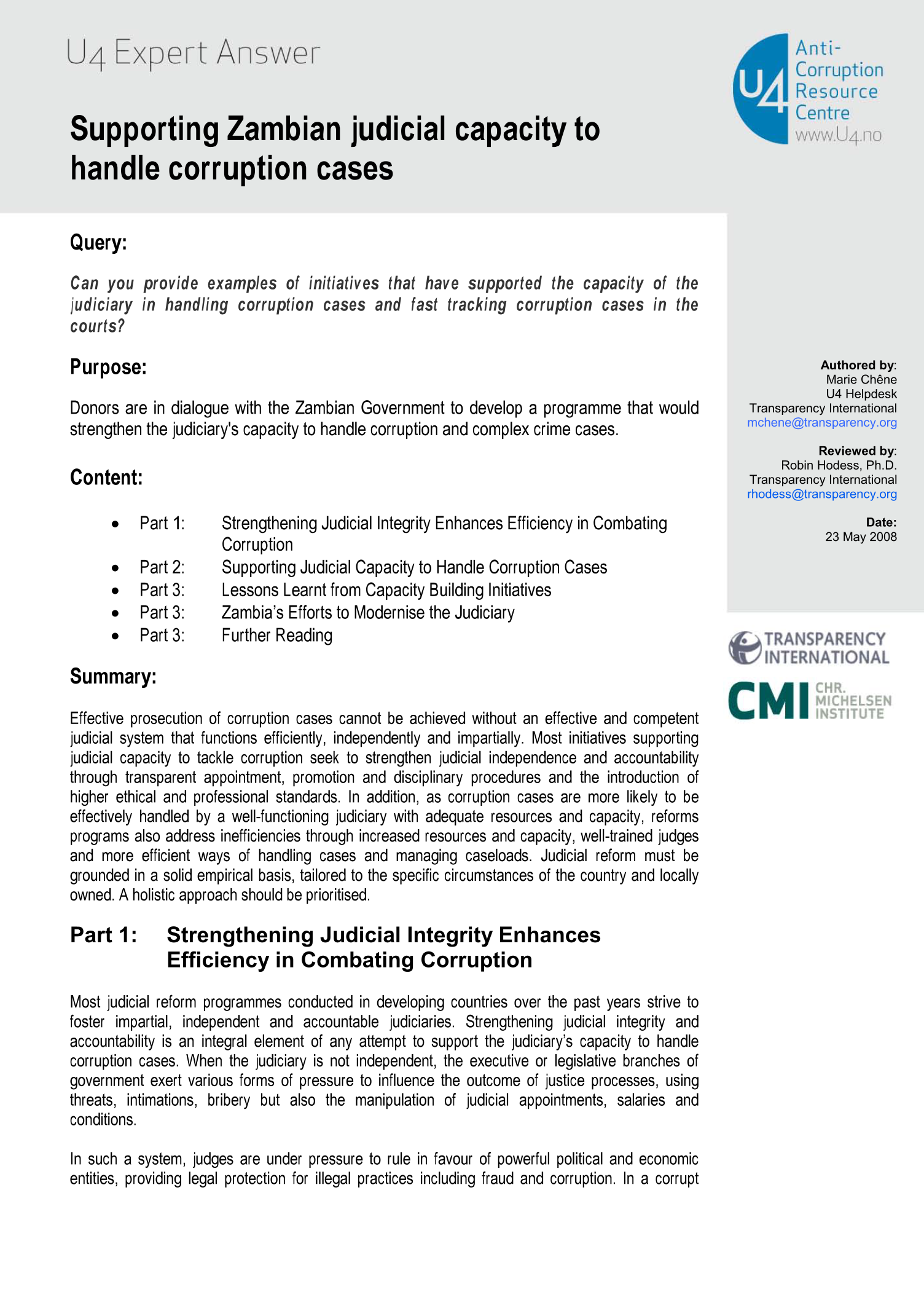U4 Helpdesk Answer
Supporting Zambian judicial capacity to handle corruption cases
Effective prosecution of corruption cases cannot be achieved without an effective and competent judicial system that functions efficiently, independently and impartially. Most initiatives supporting judicial capacity to tackle corruption seek to strengthen judicial independence and accountability through transparent appointment, promotion and disciplinary procedures and the introduction of higher ethical and professional standards. In addition, as corruption cases are more likely to be effectively handled by a well-functioning judiciary with adequate resources and capacity, reforms programs also address inefficiencies through increased resources and capacity, well-trained judges and more efficient ways of handling cases and managing caseloads. Judicial reform must be grounded in a solid empirical basis, tailored to the specific circumstances of the country and locally owned. A holistic approach should be prioritised.

Cite this publication
Chêne, M. (2008) Supporting Zambian judicial capacity to handle corruption cases. Bergen: U4 Anti-Corruption Resource Centre, Chr. Michelsen Institute (U4 Helpdesk Answer Helpdesk)
Disclaimer
All views in this text are the author(s)’, and may differ from the U4 partner agencies’ policies.
This work is licenced under a Creative Commons Attribution-NonCommercial-NoDerivatives 4.0 International licence (CC BY-NC-ND 4.0)